How BWROC lost funding from a state grant for recovery groups it helped start
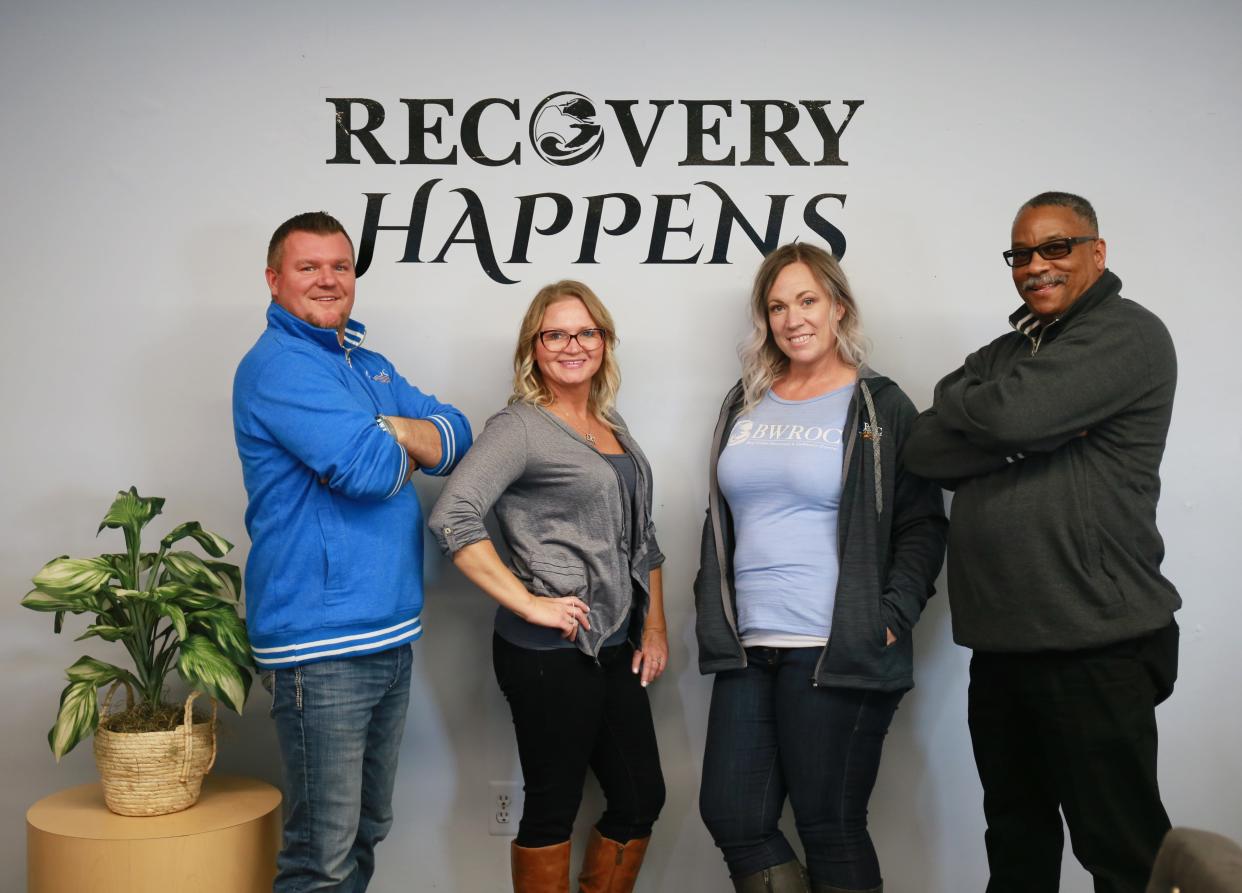
Patrick Patterson remembers the meeting at a Detroit area Starbucks that started it all.
Blue Water Recovery and Outreach Center, a group he oversees as its executive director, was relying mostly on donations and connections in the business community to help those dealing with addiction when he approached then-state Rep. Shane Hernandez looking for help accessing more support funds.
The Port Huron Republican said he’d gotten close to his colleague in the House, Joe Bellino, a Monroe representative already outspoken about his own experience with addiction.
Then, the three of them, Patterson said, touched base at the coffee chain to discuss plans for what would become the state’s first-ever recovery support services bill and the “launch pad” for recovery community organizations like his across Michigan.
“Boots on the ground, non-clinically based organizations helping people in recovery,” Patterson during an interview Tuesday. “What we did is (create) a little pebble stone, but we’re building a boulder. That’s the David versus Goliath fight on all levels. We’re trying to create a bigger voice. What Lansing doesn’t’ have when they create policy is lived experience in the room.”
More than two years later — and after the program doubled in size, becoming a state budget line item — BWROC isn’t on the latest list of groups that receive a $150,000 award.
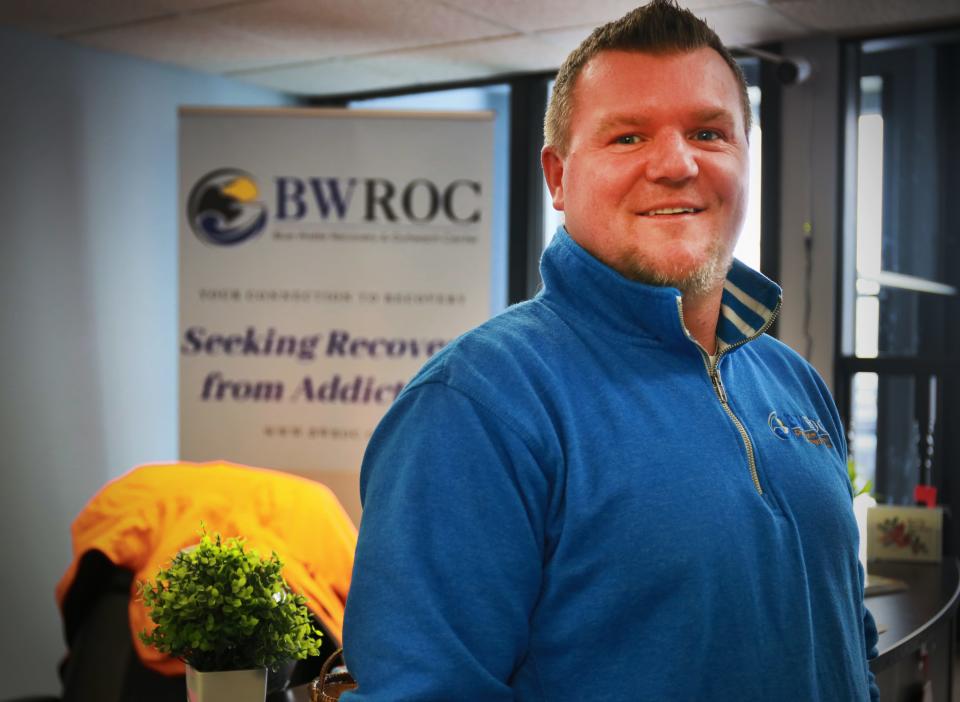
That's unwelcome news that comes as the city of Port Huron awards the group more than $400,000 in American Rescue Plan funds to support an expansion in BWROC’s recovery coaching over three years.
City Manager James Freed said the city hopes other outputs, such as an eventual share of revenue from federal opioid litigation settlements, could help fund RCO work. Patterson said he hopes Blue Water Recovery gets back on the state program's funding list.
State Rep. Andrew Beeler, R-Port Huron, who succeeded Hernandez a year ago, agreed with the latter.
“That’s a problem,” he said this week when asked about the lack of funding. “We have this grant program. We’ve identified this need. We need to make sure it’s meeting the needs of the state. So, number one, make sure the grant program can keep up with the growing RCO community. Number two, I mentioned awareness. I really think that is a key issue in the House and the Senate.”
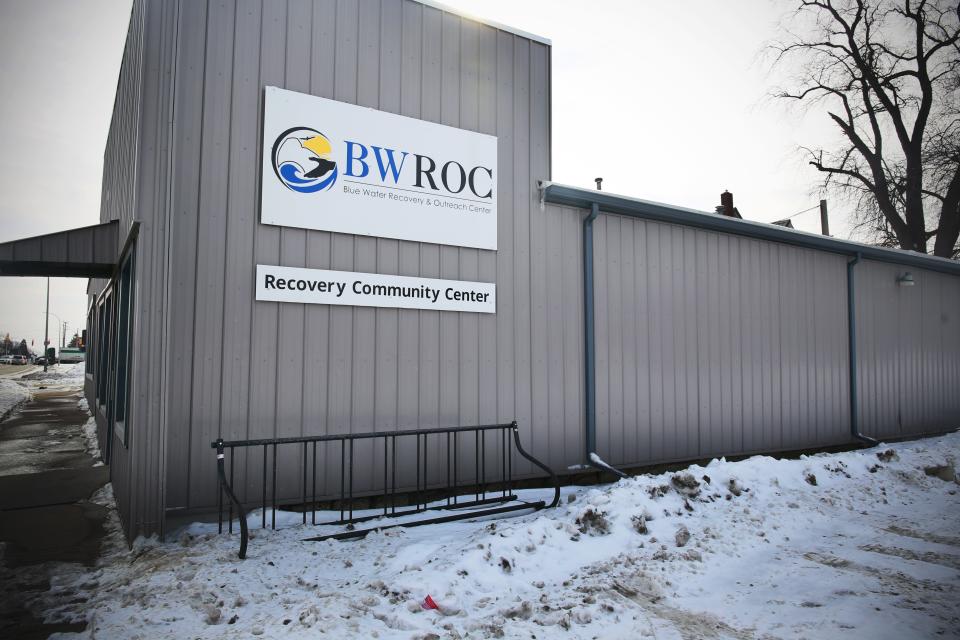
‘One of those big what-ifs’
The battle for funding isn't unique to BWROC.
Ken Heuvelman, clinical coordinator and outpatient therapist for Port Huron Odyssey House, said, “It’s part of the world of public funding.”
Funding can be year to year for certain programs, while others are financed more long term.
“And just finding those other revenues to expand those initiatives that are really helpful, that really sound great but don’t have that same fee for service. That would be something like we have a grant-funded project right now with our mobile overdose response team,” Heuvelman said. Odyssey House launched the unit with the Port Huron Police Department in 2021.
“Same kind of thing,” Heuvelman said. “We were able to get funding for that. It was initially for two years, we’re going to get it for a third, and then, the state has to reapply after this next year. There’s a belief that funding will be available, but what it will look like and how it will be distributed is kind of one of those big what-ifs.”
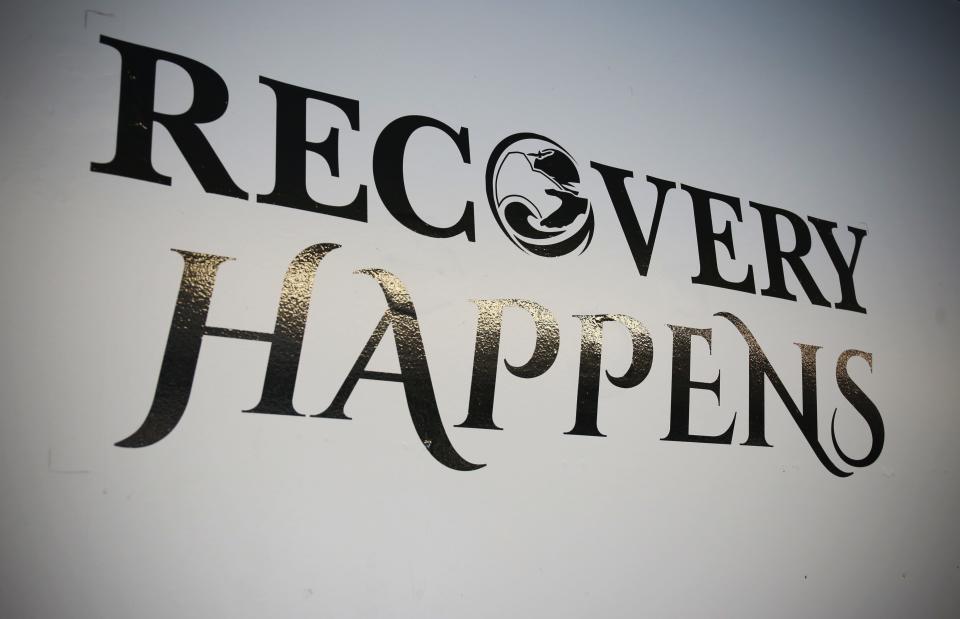
But other not-for-profits and nonprofit groups often cover bigger, regional areas or have been established longer, providing services that are more clinical. That means they require licensure, which often meets criteria for deeper wells of funding — those that RCOs can't access.
Region 10 PIHP, or prepaid inpatient health plan, utilizes more than $300 million in Medicaid funds to support both substance use disorder and mental health care services in a four-county area including Sanilac and St. Clair counties.
Executive Director Jim Johnson said they also use federal substance abuse prevention and treatment block grant dollars.
Non-clinical outreach programs can't access those dollars.
“When you get to recovery community organizations … they’re not a treatment provider in a way that we can fund with those dollars because they’re not licensed,” Johnson said.
This week Patterson pulled up a data dashboard that has tracked their program and its participants’ progress for nearly two years.
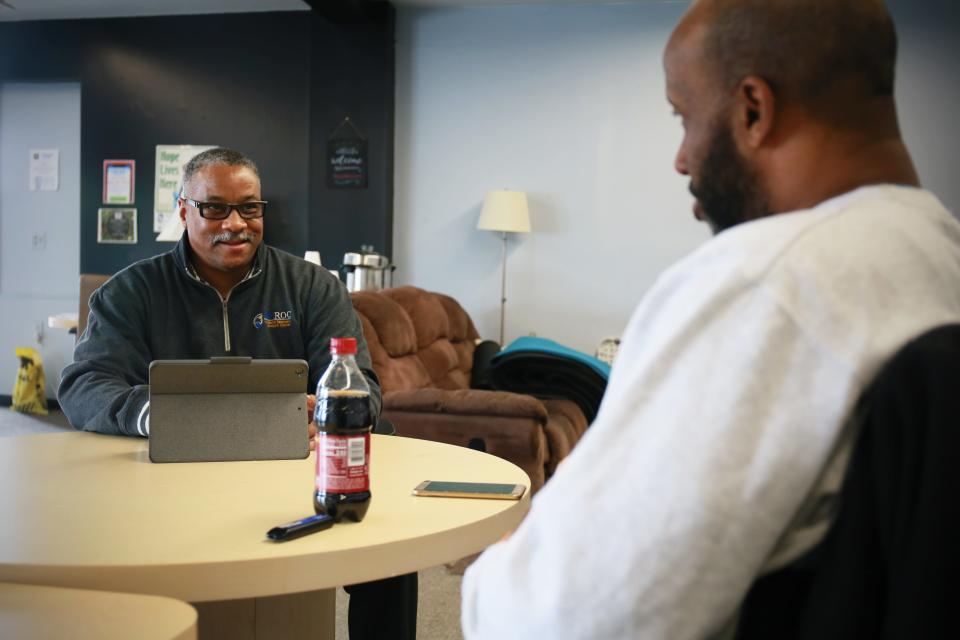
With three recovery coaches, he said they’ve surpassed the usual capacity of 25 to 30 people each with 86 people currently being helped. Since tracking was installed, BWROC has had 313 participants.
It also tracks the system of setting and ensuring goals are met with participants, and it tracks their face-to-face meetings. Of the number of participants overall, he said 279 have met goals.
“So, when they meet with them, what they do is they establish a wellness plan. And they identify certain goals they want to accomplish,” Patterson said. “I want to go to school again, I need to repair the relationship with my folks, I gotta get a job ... So, as I go through this as a result of meeting these goals, I become sober. I don’t just get sober.
"So, they’re also required to pick a pathway. Either AA, NA, a faith-based approach, a recovery dharma, which is meditation, yoga, acupuncture, we don’t care, but you gotta pick something. You can’t sit still and remain sober at the same time.”
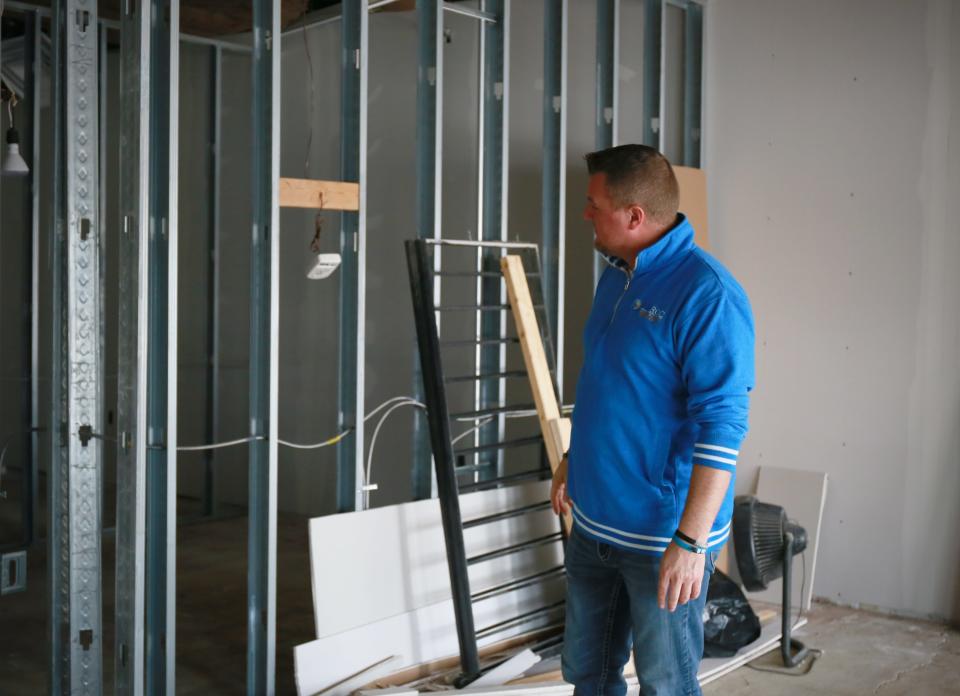
On Jan. 31, Port Huron’s City Council approved awarding a share of the city’s COVID-19 stimulus funds to BWROC to help with staffing, van purchase, office equipment and more.
It also includes $32,451 to help finish building renovations at BWROC’s 10th Street center. Patterson said the ongoing renovations are to create more space for additional recovery coaches and private meetings, as well as client access to a food pantry and closet for clothes.
“So, when somebody gets out of rehab, they’ve got 48 hours’ or 72 hours’ worth of food and clothing for free,” he said.
Freed told councilmembers funding BWROC’s efforts was a continuation of their previous attention to other areas of the recovery community, including when they established rules for sober-living homes like those run by Vision Quest or Odyssey House several years ago.
But locally, Freed said, “No one’s funding that first line of phone calls” when BWROC helps those at different stages in recovery.
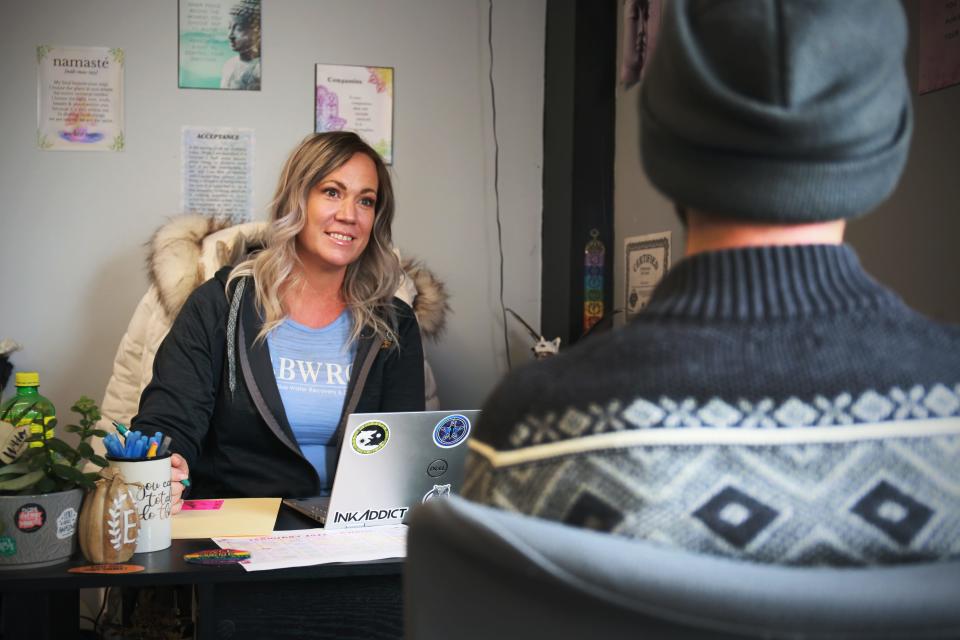
Patterson said they still have some fees for service, as well as taking in other contributions and donations. Earlier 990 tax forms put them at roughly $150,000 in revenue; Patterson said last year they had about $130,000 in other contributions with a little more than $250,000 in operating costs. He said he hoped the city's help inspires additional investments.
“This is a once-in-a-generation opportunity for the city to step in with an unusual funding source to stand behind those efforts,” Freed said.
‘We are the lobbyists,’ organizer says
Patterson said BWROC is part of a coalition, Michigan Recovery Community Collective, that works to improve recovery policy in Lansing.
They’ve seen plenty of funding for more substance abuse prevention programs and medically assisted addiction treatment, as well as some options for those groups with recovery coaches, he said, but not enough for grassroots nonprofits like them.
Hernandez said it took him time to see the difference in need.
When constituents asked him about recovery support early in the opioid crisis, he said he’d point to the millions allocated in health and human services funds.
“That’d be my answer, and then as Pat got to asking me more, I realized I don’t have a clue what we do with that (funding),” Hernandez said. “I don’t know where it goes. I don’t know what it does. I don’t know what kind of programs there are.”
Soon, he got a crash course as they established a one-time $600,000 allocation to help four RCOs, including BWROC, in late 2019. A year later, the allocation increased to $1.2 million. In 2021, it remained at $1.2 million.
Patterson said he was surprised BWROC did receive funding this year.
“That’s interesting to me because I think BWROC has been a very good partner to other recovery centers in this process,” he said.
Still, organizers said in a competitive grant program, that was always possible.
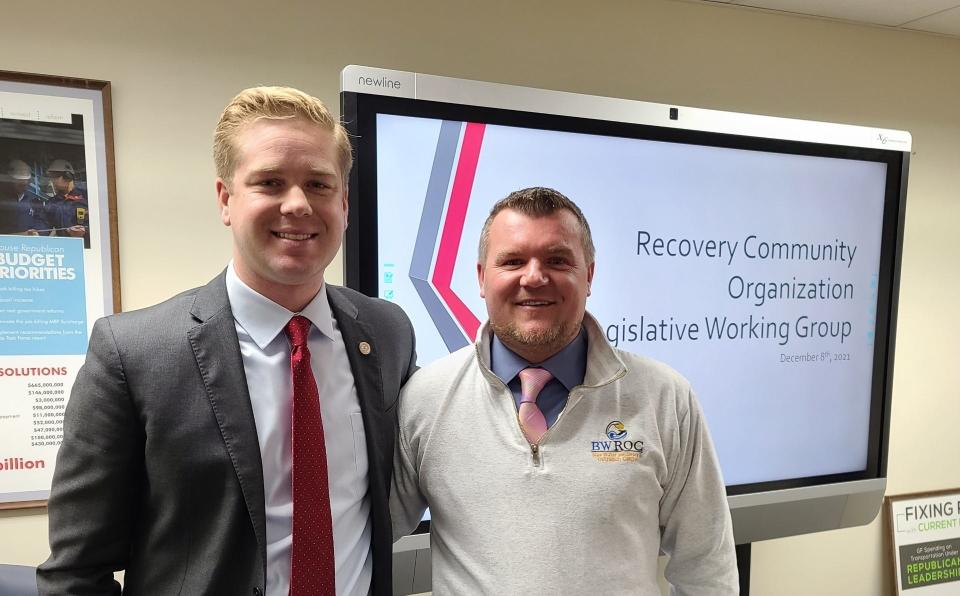
Since taking office, Beeler said he’s continued to work with BWROC and MRCC to organize recovery days with other lawmakers.
“That’s the role that I’ve started to play is bringing other legislators to the table so they can learn about the good work that our RCOs are doing. Really behind the scenes,” Beeler said. “… If I can raise the awareness ... I think that we’ll start to be able to address some of the needs that they have at the legislative level more broadly.”
According to the Association of Recovery Community Organizations, or ARCO, there are 17 member RCOs in Michigan. The state grant program supports only eight. Patterson said their need more support and more awareness.
“We don’t have the funding for lobbyists. We are the lobbyists. So, we have to train our representatives what to look for,” he said.
Hernandez also addressed the need to support an interest group that lacked a lobbying arm to advocate for them.
“If you'd told me after I got elected but before I got started that the opioid epidemic is going to become one of your biggest issues in one year, something you would view as one of your bigger accomplishments, I would’ve told you, ‘I don’t think so,’” Hernandez said. “But you meet people along the way.”
Contact Jackie Smith at (810) 989-6270 or jssmith@gannett.com. Follow her on Twitter @Jackie20Smith.
This article originally appeared on Port Huron Times Herald: Blue Water Recovery Outreach Center loses state funding

